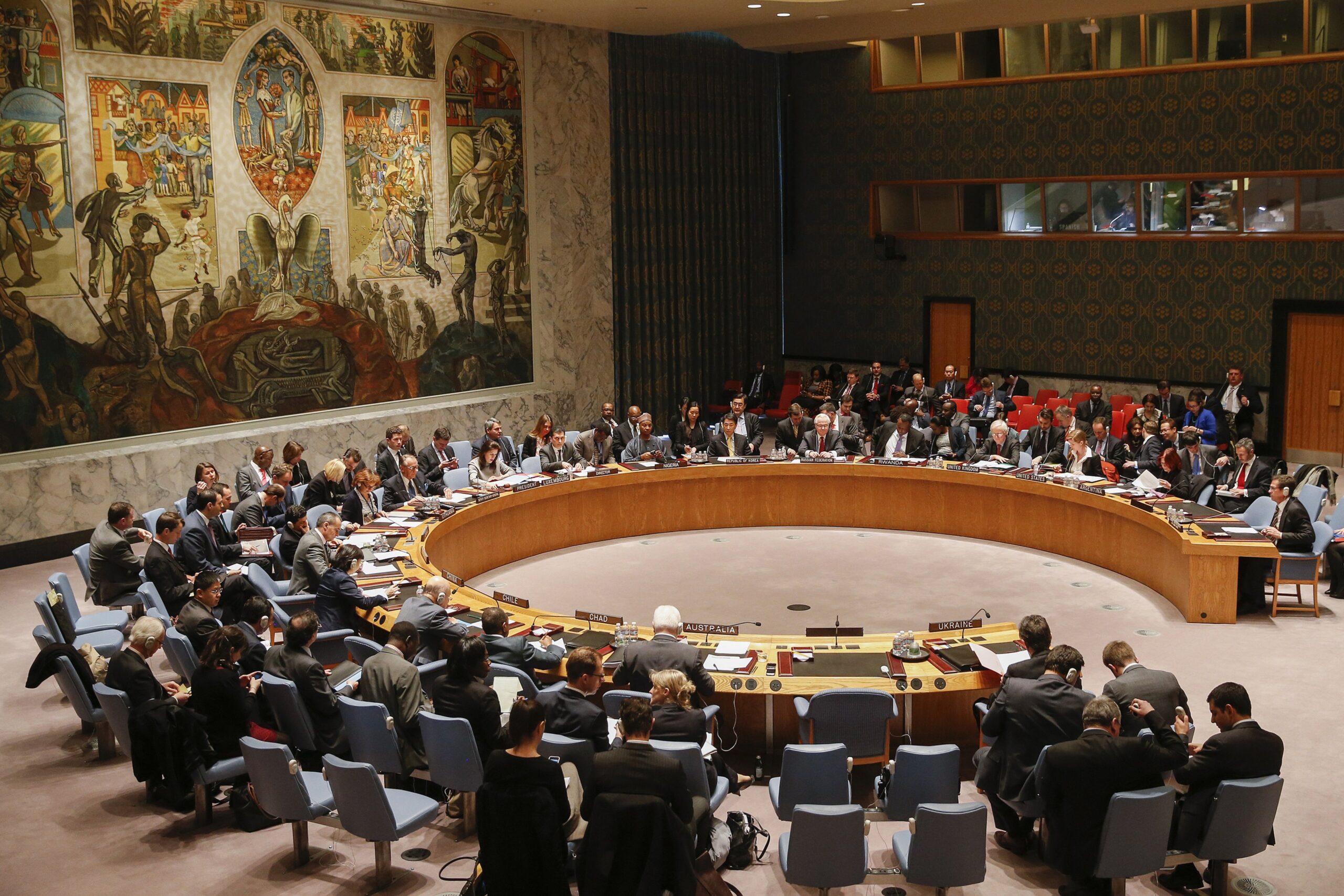The Reform of the United Nations Security Council and the Italian position
The Commemoration of the 75th anniversary of the United Nation (UN) was celebrated with a one-day high-level event at the General Assembly (UNGA 75)[1], under the theme: ‘The Future we Want, the UN we Need: Reaffirming our Collective Commitment to Multilateralism’. World leaders came together, virtually, on Monday 21st to discuss about the effectiveness and solidarity of the organisation that was set up after the horrors of World War II.
Today’s international scenario has deeply changed compared to what emerged from the creation of the United Nations in 1945. The recent debate is mainly about the criticisms towards the Security Council (SC), the UN body in charge for maintaining international peace and security. It is currently composed of 5 permanent members with veto power (China, France, United Kingdom, Russia and the United States) and 10 non-permanent members, elected by the General Assembly (AG) with two-year terms, not immediately renewable, and divided between the geographical groups of the UN (3 seats for Africa; 2 for Asia-Pacific; 2 for the countries of the Western Group; 2 for the countries of Latin America and the Caribbean; 1 for the of Eastern Europe).
Namely, the main reasons for reforming the SC may be enumerated as follow: the birth of new States and the transformation of the international community; the increase of SC’s role after the end of the Cold War; the SC as legislator; the new threats; the use of force by States. All of them are related to the fact that the United Nations now have 193 Member States, thus making the current distribution of seats in the SC geographically unbalanced , especially because the African representation is missing, and numerically insufficient to guarantee adequate representativeness of the entire memberships. According to the UN Charter (Articles 108-109), any modification thereof must necessarily obtain not less than 2/3 of the favorable votes of the Member States of the GA and their ratification, in accordance with the respective constitutional norms (among these must include all 5 permanent members).
Until now, the only reform of the SC took place in 1963, when the number of permanent members was increased from 6 to 10 under Resolution 1991-XVIII[2]. The amendment was approved with France and Soviet Union voting against, the UK and the US abstaining and Taiwan voting in favour. The same Resolution also increased the number of ECOSOC members from 18 to 27, followed by a second increase from 27 to 54 with the Resolution 2847-XXVI[3] of 1973.
However, no other reforms have been made so far, even if a new reform should be discussed soon. In fact, the ex Secretary General (SG) Kofi Annan, back to 2004, appointed a pannel of 16 “eminent people”, called “High Level Pannel (HLP) on Threats, Challenges and Changes”[4] to reach an efficient international peace and security. The Pannel prepared the Report named “A more secure world: our shared responsability (A/59/565)”[5] dealing not only with the reform of SC but also with issues related to the brand-new SC members, permanent and not permanent. They proposed two models. Model A provides for six new permanent seats, with no veto being created, and three new two-years non-permanent seats, divided among the major regional areas of Africa, Asia and Pacific, Europe and Americas. Model B does not envisage any permanent seats but creates a new category of eight four-year renewable-term seats and one new two-year non-permanent seat, non-renewable as well, divided among the major regional areas called in the model A. However, they are just proposals, not followed by States that, over the years, formulated different reforms.
The 2005 World Summit[6] did not take a stance on the SC reform, but it is relevant because this is the year in which the three major schools of thought were formed: G4, African Union, Uniting for Consensus.
The G4 (Brazil, Germany, India and Japan) tabled a draft Resolution aiming the increase to 25 members of the SC, with 6 new permanent members and their possibility of a veto right after 15 years.
The African Union (AU) suggested the total number should be 26, adding 6 new permanent members with the veto right and 5 non-permanent members.
Italy and other countries created the Uniting for Consensus (UfC), proposing 10 new non-permanent members, with the possibility of immediate re-election after the expiry of their mandate.
However, no proposal was made into force, and the following years marked a deadlock in the work of the Open-ended Working Group until the informal plenary of the GA of 2008 (GA Res. 62/557 of September 2008) and the creation of the Inter-Governmental Negotiation (ING), promoted by the Ambassador Zahir Tanin (Afghanistan). From that date, up to the present day, the negotiation sessions have involved all the Member States.
Even if the new round of negotiations did not bring any real result, it was useful to identify important areas of convergence and to clarify the positions of the current permanent members of the SC:
France and UK support the G4, with the creation of a new category of seats with a longer mandate, facing an intermediate period of 15 years necessary to “convert these new seats into permanent seats”.
The US agree with a limited expansion of both permanent and non-permanent members, but just without any massive and non-reversable change of the UN charter.
China is for increasing the number of SC members with priority for developing countries, especially African ones. However, it does not specify the number or categories of new members and their right of veto.
Russia expressed some sympathy for the G4 proposal but declared on 2010 and 2018 that “so far none of the existing models of reforming the Council enjoys prevailing support in the UN”[7].
Differences of views remain, on the other hand, mainly on two fundamental aspects: on the veto mechanism and the categories of members, i.e. on the advisability of establishing new permanent seats (with or without veto) or on expanding the Security Council by increasing only the number of non-permanent seats. The division on these issues is the main cause of the deadlock in the negotiations. The identification of a compromise on these issues (veto and category of members) would therefore give an important impetus to the reform process.
Italy, as part of the UfC, has made several compromise proposals over the years in terms of seat categories.
In 2011, the Ambassador C.M. Ragaglini, as Permanent Representative of Italy to the UN, expressed his concerns regarding the rigidity that an entrenchment of different positions may entail on the negotiations, that “should not serve as a way to impose a solution”[8]. From 2004, Italy has always attested to a good faith, respect and transparency through flexibility in order to achieve a successful negotiation process. Due to its flexibility, in 2014 Italy proposed a new formula (“intermediate approach”) focused on the creation of new “long-term” seats, assigned to regional groups (not to individual countries) with the possibility of immediate re-election (currently excluded by the UN Statute). They moved forward with a fresh proposal that represents not a “take or leave it” position, but rather a true starting point for concrete results.
UfC believes that this formula can offer the foundations for a solution that can meet the needs of those countries that aspire to serve for longer periods in SC, in the light of their growing international commitment and, at the same time, offer all 193 countries members of the United Nations increased rotation to serve in the SC.
As the Italian Prime Minister Conte declared few days ago[9], Italy and the countries of the UfC Group will continue to commit themselves, in dialogue with all the other negotiating groups, with a spirit of compromise, in order to contribute to a reform that can really ensure that the future Security Council is more democratic, representative, effective and accountable to the entire membership , in line with the objectives now shared and declared by all the Member States of the United Nations. “It is the time of courage, it is the time of a new vision, like 75 years ago. So let us all together renew our commitment to work in order to build a better future for our children”[10].
[1] https://www.un.org/en/ga/75/meetings/
[2] https://www.securitycouncilreport.org/un-documents/document/wmp-a-res-1991a-xviii.php
[3] https://undocs.org/en/A/RES/2847(XXVI)
[5] Available at https://www.securitycouncilreport.org/un-documents/document/cpr-a-59-565.php
[6] The outcome of the World Summit is available at: https://www.un.org/en/development/desa/population/migration/generalassembly/docs/globalcompact/A_RES_60_1.pdf
[7] https://link.springer.com/chapter/10.1057/9780230378704_25
[8] Statement by Ambassador Ragaglini on the Occasion of the Informal Meeting of the Plenary in the General Assembly on the Security Council Reform: https://italyun.esteri.it/rappresentanza_onu/en/comunicazione/archivio-news/2011-03-02-riforma-cds.html
[9] http://www.askanews.it/politica/2020/09/25/conte-riforma-consiglio-sicurezza-per-onu-pi%c3%b9-efficace-pn_20200925_00236/
[10] Ibid.
Angelica De Vito, dopo essersi laureata a pieni voti presso la Facoltà di Giurisprudenza di Napoli “Federico II”, ha frequentato la SIOI per il Master “Relazioni Internazionali e Protezione Umanitaria”, seguito da un LLM sui mezzi di risoluzione delle dispute internazionali presso l’Università “Queen Mary of London”. E’ vincitrice della borsa di studio “Diritti Umani – Alessandro Pavesi 2020-2021” e del concorso “Fulbright 2020-2021″per il progetto di studio “Climate Change and Displacement” presso le seguenti Università: “Harvard University”, Massachusetts; “Columbia University”, New York; “Pace University”, New York.





Pingback: The Reform of the United Nations Security Council and the Italian position - Terra 365